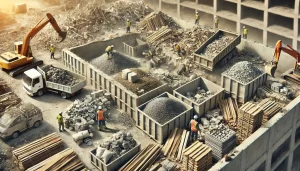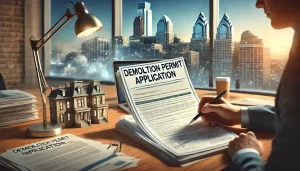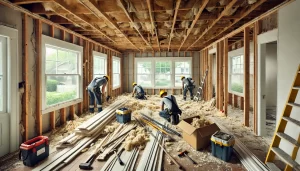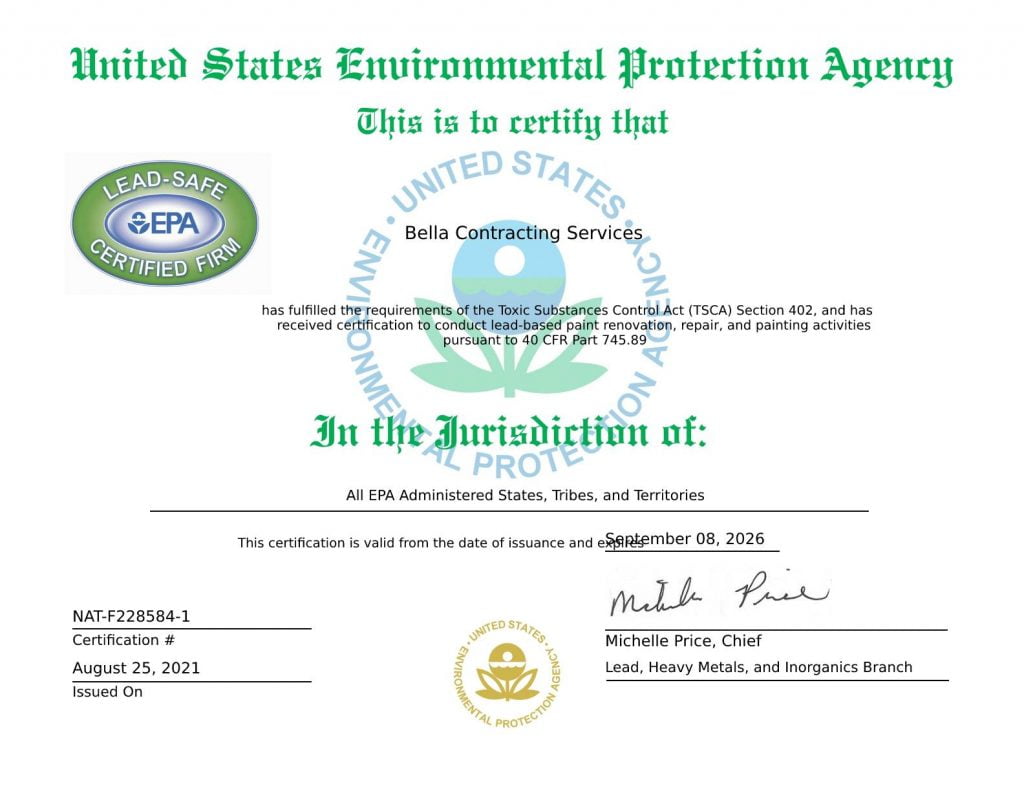Demolition is an essential process in the revitalization of communities.
There are problems with the process—demolition comes with a number of disadvantages. Environmental concerns tend to be at the top of this list.
In this article, we’ll explore the environmental impacts of demolition on the communities in Pittsburgh. Then, we’ll analyze some of the ways that construction companies can mitigate these environmental concerns and the steps the city is taking to help the demolition industry go green.
The Environmental Impact of Demolition
Air Pollution
Heavy machinery, explosives, and transportation all contribute to air pollution. Heavy machines and the vehicles used for transportation are fuelled with diesel or gas—hybrid or electric heavy machinery is almost unheard of in the industry.
Explosives and heavy machinery also create significant amounts of dust pollution. While this pollution doesn’t contribute to climate change in the same way that fuel use does, it can have immediate impacts on communities in Pittsburgh by aggravating respiratory illnesses.
Other dangerous substances, like asbestos, can also be released into the air during demolition.
Soil & Water Pollution
Harmful materials from demolished buildings can work their way into soil as well as into groundwater and other water sources. These harmful materials can include asbestos, lead paint, and other hazardous chemicals. Many buildings in Pittsburgh are decades or even over a century old; when demolishing these buildings, contamination is a very real hazard.
Noise Pollution
Noise pollution is also an environmental concern; it can contribute to health problems by disrupting sleep. Constant noise can also limit business activities and be particularly impactful to pets, children, and wildlife.
Explosions, heavy machinery, drilling, and transportation can all contribute to noise pollution during demolition projects.
Waste Production
Demolition represents over 90% of the waste created by the construction and demolition industry. While a fair portion of the 600 million tons of waste created by the industry are recycled or reused, 145 million tons are sent to landfills. This increases the risk of soil and water contamination and can quickly fill landfills.
Green Demolition in Pittsburgh
Strategies To Reduce Air Pollution
Contractors can employ a number of techniques to reduce air pollution. Where possible, the use of heavy machinery should be limited. Materials used during demolition (like timber used to create scaffolding or protective barriers) should be locally sourced. Dust suppression techniques like the use of mist should be employed.
Additionally, by carefully scheduling the shipment of materials, demolition companies can reduce idle fuel emissions.
Strategies To Reduce Soil & Water Pollution
Buildings should be vetted for asbestos, lead, and other contaminants; where possible, these contaminants should be removed before demolition commences. When hazardous materials are known to exist in a building, demolition contractors should limit how long debris from these buildings stays on-site and should employ protective measures to reduce the chance of runoff in the soil and waterways.
Strategies To Reduce Noise Pollution
By using low-noise equipment, noise-protective barriers and scheduling work at times that are less likely to disturb residents, demolition contractors in Pittsburgh can limit the effects that demolition noise has on our communities. A reduction in the use of explosives and heavy machinery can also help.
Deconstruction & Reuse
Pittsburgh is pursuing a policy of deconstruction over demolition, especially for city-funded demolition. Deconstruction can limit many of the environmental impacts of demolition; this can drastically reduce the social and economic disadvantages of demolition.
Deconstruction is an approach to demolition that emphasizes removing elements of buildings piece-by-piece rather than destroying them using explosions or heavy machinery.
The result is that building elements can be recycled or reused rather than sent to the dump. This diverts waste from landfills and can lead to low-cost (and sometimes high-quality) materials for new construction projects.
Conclusion
When looking for a commercial construction contractor in Pittsburgh to handle your demolition (and subsequent construction), look for a company that works in deconstruction and green demolition. This will help you mitigate harm to communities while maximizing the advantages of demolition.










